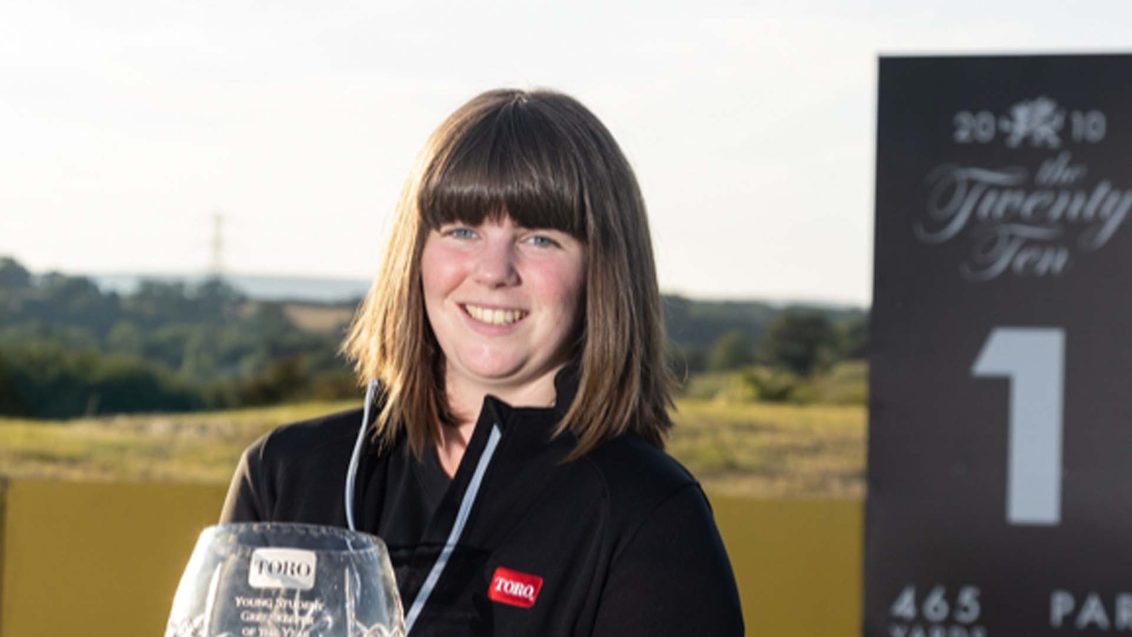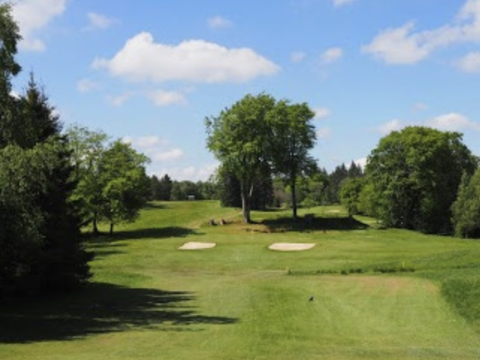Q&A: Hoylake greenkeeper Rhian Barton

Rhian Barton is relishing the greenkeeping life and the multiple options that come with her relatively recent beginnings in the turf industry.
Three years ago Barton, 22, started as an apprentice greenkeeper at Carden Park Golf Club, near Chester in north-west England, having turned pro the previous year after playing at amateur level for Wales.
Last year she was crowned the first female winner of the Toro Young Student Greenkeeper of the Year award.
Female leaders of all ages work in the golf and turf industry, and through movements such as Ladies Leading Turf, supported by Syngenta, initiatives such as the all-female US Women’s Open greenkeeping team at last year’s event in San Francisco - and at Pine Needles this June - have been possible.
Barton says, one day, she would love to be a part of such a team. But for now, she is busy at Hoylake as preparations continue to host the 2023 Open Championship.
Read on for our Q&A…
How special is it to be a greenkeeper at a venue like Hoylake?
We’re already starting work towards the Open and I’m excited to see how you prepare for a major. Every day we do something else so professional and detailed, I can’t wait to be a part of it.
This job is special to me as it combines my passion for golf and sport with my interest in science and learning and my desire to do something practical and be outside. When I was playing full-time amateur and professional golf, I was always out on the golf course because I loved it, not just for the challenge of the game, but for the surroundings and being outdoors. Having this job means that I don’t lose that aspect.
You’ve had success on the course as a player, what’s it like to have success on the course as a greenkeeper?
In golf I knew where I wanted to be, I wanted to win every tournament. It was really hard when you didn’t. In greenkeeping there’s such a variety of career paths, so it’s exciting to be able to see my progression more clearly than in golf.
I’m open to all paths, it might be course manager, but someone might come along with another step up, perhaps in club management, or even down the agronomy route and travelling with tournaments. As a golfer I love playing tournaments.
Being successful in greenkeeping, there are more little wins than when I played. I can see myself climbing and I can see where I want to go. In golf it was more in the moment.
Why do you think there is a lack of younger people joining the golf industry? How would you help attract the youth of today?
I think it isn’t a typical industry that is talked about in schools and hence younger people don’t seek out this industry straight out of school.
In order to attract younger people into this industry I think we can appeal to them in schools by offering work experience weeks, but also I think you can be specific and advertise to young golf fans and really push what the Sportsturf industry is and what careers are available at large events such as as The Open Championship.
I see plenty of opportunity in the fan zones and around the golf course to showcase what greenkeepers do and this may spark interest in the younger audience.
Why is work with other industries – you’ve spoken about trips to Wembley and AS Monaco Football Club – so important?
We’re all in the same industry – turf. It was great to be in conversations with AS Monaco and Vidauban Golf Club in France about supply demands. If I apply that to the UK, I might think how does Wembley deal with that and how does Hoylake? If I was to become a course manager, who could I network with and get some insight? It might not just be golf courses…
Communication is of course key. How supportive do you think golf is towards females in the industry, particularly greenkeeping?
The strange thing for me is that I find the actual workplace is great. When I worked at the Wisley I didn’t feel different, and that’s the same here at Hoylake. Where I’ve tended to face adversity is from golfers themselves. They can be a little bit shocked and have to make a comment because it’s unusual for them to see. The guys I work with are really good because they’ll say back ‘Rhian’s part of the team, it’s normal’. I find that really supportive.
But I think for the wider golf industry, it’s time to say this is the new norm. I think that will come with time.
The hardest part about being female in the industry is it can be a bit lonely, in terms of outside of work. When I lived in Surrey, I didn’t have any family there, so when you go home you’re on your own. It’s harder to say to the boys, ‘Are you free after work to hang out?’
When I went to BTME (BIGGA Turf Management Exhibition), I met other leading women in the industry who felt the same, and they passed on tips and advice which has made me better all round, not just in the work place.
Thanks Rhian. Wishing you every success in your career and we can't wait to see The Open at Hoylake next summer.
You can keep up to speed with course updates from Rhian by following her on Twitter @rhianbarton99


